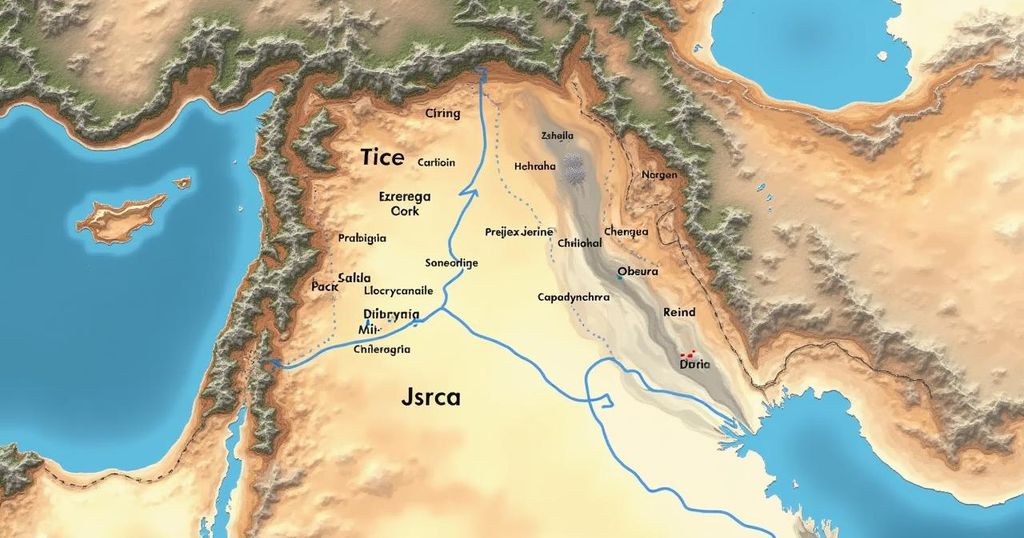The Dynamics of Israeli Military Operations in Syria: A Year in Review
Israel has conducted over 220 military attacks on Syria in the past year, targeting Iranian interests and infrastructure. These actions have resulted in significant casualties and have evoked condemnation from various nations, although the international response remains largely muted. The ongoing conflict reflects deep-rooted tensions in the Middle East, particularly Israel’s concerns regarding Iran’s influence in Syria.
Israel has conducted numerous military operations against targets in Syria, which have frequently gone unnoticed due to its ongoing conflicts in other regions such as Gaza. Over the past year, it has conducted more than 220 air and artillery attacks within Syrian territory. Notably, these interventions primarily target Iranian assets, such as weapons depots and bases of Iran-backed groups, although they have also resulted in civilian casualties, with death tolls exceeding 296 individuals since January. Among the most significant strikes was an attack in April 2023 that targeted the Iranian consulate in Damascus, resulting in the deaths of high-ranking members of the Iranian Islamic Revolutionary Guard Corps (IRGC). Syria’s response has largely involved vocal condemnation, and there have been limited retaliatory actions, primarily attributed to Iranian-backed groups. Despite the violation of Syrian sovereignty, the international community has remained largely ineffectual in addressing these aggressive maneuvers. Countries like Russia and China have denounced these attacks publicly, asserting that they constitute gross violations of international law. Israel continues to justify its military actions by citing the threats posed by Iranian interests in Syria, maintaining that it will act in accordance with its national security assessments. This longstanding pattern of aggression is not new; Israel has been targeting operations in Syria for decades, with intensified activity observed after the onset of the Syrian Civil War in 2011. The recent escalation of hostilities after October 7, 2023, represents the latest chapter in this protracted conflict.
The relationship between Israel and Syria has been marked by conflict and tension for several decades. Israel perceives threats from Iran and Iran-aligned groups operating within Syria, particularly following the civil war that has seen the Syrian regime, led by President Bashar al-Assad, align closely with Iran. Israel’s military operations aim to preemptively mitigate perceived threats from these groups by targeting their infrastructure within Syrian territory, often resulting in significant destruction and loss of life. The conflict dynamics have been complicated further by the involvement of various international actors, leading to a precarious security environment in the region. Despite the scale of Israeli airstrikes, which reportedly number over 220 in the past year, a broader understanding of these events has been overshadowed by the ongoing violence in Gaza and other neighboring regions. As Israel continues its operations, condemnation from the international community has remained tepid, creating a controversial backdrop for discussions regarding state sovereignty and military engagement in foreign territories.
In summary, Israel’s military actions against Syria are a continuation of long-standing policy aimed at neutralizing perceived Iranian threats. While Israel maintains that these operations are self-defense, the attacks raise significant questions regarding international law and violations of a nation’s sovereignty. The quiet response from the international community, countered by vocal condemnation from certain countries, highlights the complex and often paradoxical nature of international politics in the Middle East. As Israel continues its strategies in the region, the implications for both local and international stability remain uncertain.
Original Source: www.aljazeera.com




Post Comment